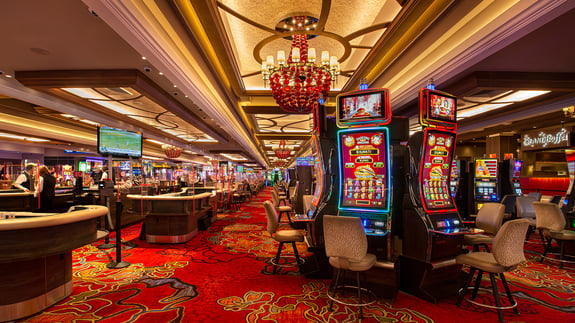
Casino experiences have long captured the imagination of individuals around the world, becoming an essential part of both entertainment and society. From the shimmering lights of Nevada to the engaging experience of virtual casinos, these games evoke enthusiasm, danger, and sometimes even a sense of remembrance. They are more than simply hobbies; they have woven themselves into the fabric of human experience, influencing everything from movies and music to fashion and books.
The allure of casino games transcends the betting aspect, tapping into broader themes of fortune, risk, and social interaction. As players gather around a poker table or spin the roulette, they engage in an timeless ritual that resonates with our collective desire for thrill and uncertainty. This obsession has led to the rise of countless references in films, music, and video games, showcasing how deeply entrenched these games are in pop culture. Whether it is the high-stakes tension of a classic caper or the colorful nightlife portrayed in recordings, casino games have established a substantial place that reflects our bond with risk and reward.
Historical Importance of Gambling Games
Casino activities have played a key role in cultural aspects throughout the ages. Originating from ancient civilizations, forms of chance were often linked to ceremonies or events. For example, early forms of gambling can be traced back to historic China and the Romans, where dice games and betting on outcomes were popular pastimes. These games not only served as entertainment but also as methods of social interaction, facilitating relationships among people within communities.
As societies evolved, so did the sophistication and structure of casino games. The establishment of official casinos in the 17th century, particularly in Italy, marked a notable shift in how games were viewed and structured. With designated spaces for gambling, the casino became a social hub where people from various backgrounds gathered. This change contributed to the validation of gambling, transforming it from a mere pastime into an established industry that shaped the economy and regulations.
The effect of casino games on mainstream culture cannot be overlooked. As they were popularized in books and movies, games such as Texas Hold’em and blackjack became icons of risk, chance, and strategy. Famous figures and stories have emerged around these games, reflecting societal views towards luck, prosperity, and immorality. This fascination with gambling games has permeated various forms of entertainment, cementing their place in the collective consciousness and connecting them to broader cultural narratives throughout history.
Depiction of Casino Games in Entertainment
Casino activities have long been a popular subject in different types of entertainment, reflecting both the excitement and intricacies of gambling culture. Movies such as Ocean’s 11 and Casino Royale portray figures who navigate dangerous scenarios, showcasing not only the allure of the casino atmosphere but also the strategies and decisions that come with playing popular games like poker and blackjack. These films often dramatize the exhilaration of winning and the potential results of losing, encapsulating the perils involved in betting.
TV programs have also explored the world of gambling activities, often integrating them into the narrative as a setting for character arcs and tension. Shows like Las Vegas depict the experiences of gambling employees and casino-goers, highlighting the vibrant, often chaotic energy of the gaming floor. Reality shows featuring intense gambling competitions further emphasize the appeal of casino games, drawing viewers into the tension and strategy involved in each round. Through these representations, media not only amuses but also prompts conversations about fortune, skill, and the character of randomness.
Gaming have increasingly incorporated gambling activities into their design, allowing players to simulate the thrill of gambling without financial exposure. Games within the domain of digital gaming often include virtual slots, poker, and other popular casino games, creating an interactive experience that mirrors actual casino experiences. These digital representations make gambling activities accessible to a global audience, appealing to both gamblers and those who enjoy the thrill of simulation. As a outcome, the representation of casino games in media continues to shape societal views and cultural significance, highlighting their function in entertainment and the cultural landscape.
Effect of Gambling Activities on Society
Gambling activities have a meaningful impact on communities, influencing various aspects of societal norms and interpersonal behavior. They often function as a platform for social interaction, where people gather to experience a shared activity. Casino trips with friends or visits to casinos become group events that foster connections and create memories. This collective aspect enhances the entertainment value of casino games, making them a popular choice for celebrations and recreational pursuits.
Additionally, gambling activities have been depicted in countless movies, television shows, and written works, shaping perceptions and opinions towards gaming and gaming. Icons like James Bond playing baccarat or the high-stakes poker scenes in films have cemented these games in the collective imagination. This representation often glamorizes the culture associated with gambling, drawing in new players and impacting trends in both style and behavior. These portrayals can ignite curiosity and lead to a deeper exploration of the nuances of gambling. ww88
However, there are also negative implications linked to the popularity of gambling activities. The allure of quick monetary gain can lead to gambling addiction and financial troubles for some people. The community must grapple with these consequences, advocating for responsible gaming and education of the risks involved. Balancing the entertainment value of gambling activities with the risks is vital to ensure that they remain a positive aspect of our societal fabric.
